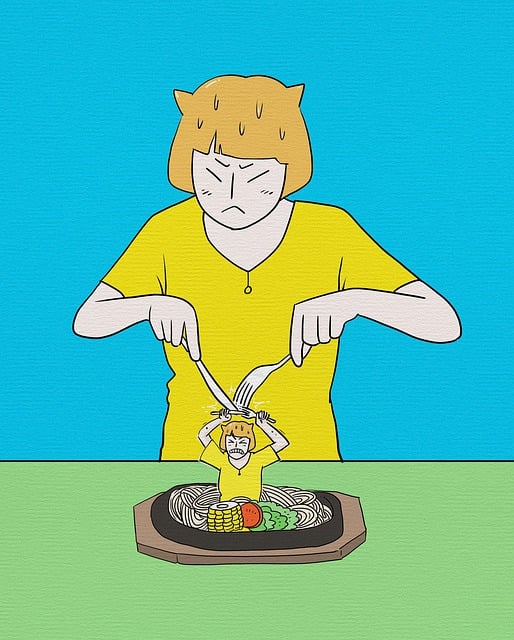Doctor-supervised weight loss programs combine medical expertise with behavioral therapy, such as cognitive-behavioral techniques (CBT), for effective and sustainable weight management. These programs offer structured frameworks, personalized support, and evidence-based strategies tailored to individual needs, empowering participants to transform their eating habits, physical activity levels, and lifestyle choices. Through CBT, participants learn to identify and modify unhealthy thought patterns related to food, set realistic goals, keep food journals, and practice portion control, all while receiving guidance from professionals and peer support through group therapy sessions. Research consistently shows that behavioral interventions in medically supervised settings lead to significant and lasting improvements in weight loss, health markers, and overall quality of life, making these programs key drivers in the fight against obesity.
Behavioral therapy is a powerful tool in the fight against obesity, and medically supervised programs are revolutionizing weight loss journeys. This article delves into the transformative power of understanding behavioral therapy, highlighting its integral role in doctor-supervised weight loss programs. We explore how medical professionals navigate this field, ensuring safety and effectiveness through tailored techniques. By examining success rates and considering essential factors, readers can make informed choices, embarking on a path to sustainable weight management.
Understanding Behavioral Therapy: A Brief Overview

Behavioral therapy is a crucial component in many medically supervised weight loss programs, offering participants effective tools to manage their health and achieve long-term success. This therapeutic approach focuses on understanding and changing one’s behavior patterns related to eating habits, physical activity, and overall lifestyle choices. By identifying and modifying these behaviors, individuals can gain better control over their weight and overall well-being.
In the context of doctor-supervised weight loss programs, behavioral therapy provides a structured framework for patients to learn about portion control, healthy eating, and effective strategies to combat emotional eating. Therapists work closely with participants to help them recognize triggers that lead to unhealthy food choices, offering alternative coping mechanisms and promoting positive behaviors. This personalized approach ensures that each individual receives the support needed to navigate their unique challenges on the path to weight loss and improved health.
The Role of Doctors in Weight Loss Programs

In doctor-supervised weight loss programs, medical professionals play a pivotal role in guiding individuals toward successful and sustainable behavioral changes. These experts are integral to the process as they not only provide crucial medical oversight but also offer evidence-based strategies tailored to each participant’s unique needs. By integrating behavioral therapy into these programs, doctors facilitate a holistic approach to weight management, addressing both physical and psychological aspects of obesity or overweight conditions.
The presence of doctors in such programs ensures that participants receive personalized care. They assess the patient’s overall health, consider their medical history, and take into account any co-occurring conditions, all while implementing effective treatment plans. Regular consultations with doctors empower individuals to make informed decisions about their dietary choices and physical activities, fostering a sense of accountability and commitment to their weight loss journey.
Supervised Programs: Ensuring Safety and Effectiveness

In the realm of healthcare, doctor-supervised weight loss programs play a crucial role in ensuring safety and effectiveness within behavioral therapy frameworks. These programs are meticulously designed to provide structured guidance, incorporating both medical supervision and evidence-based therapeutic techniques. Under the watchful eye of medical professionals, patients engage in tailored interventions that address underlying behaviors contributing to obesity or overeating disorders.
The supervision aspect is vital, as doctors can closely monitor patient progress, adjust treatment plans as needed, and mitigate potential risks. This comprehensive approach fosters a supportive environment conducive to successful behavioral changes, especially when combined with therapeutic strategies like cognitive-behavioral therapy (CBT). As a result, doctor-supervised weight loss programs have emerged as game-changers in the battle against obesity, offering a safe and effective path towards lasting wellness.
Techniques Employed in Doctor-Supervised Weight Loss Programs

In doctor-supervised weight loss programs, behavioral therapy techniques play a pivotal role in achieving and maintaining healthy weight loss goals. These programs often incorporate cognitive-behavioral therapy (CBT), where participants learn to identify and modify unhealthy thought patterns and behaviors related to eating. By understanding emotional triggers and developing healthier coping mechanisms, individuals can make more conscious food choices.
The approach may include setting realistic goals, keeping food journals, and learning portion control techniques. Doctor supervision ensures that these methods are tailored to each individual’s needs, offering guidance and support throughout the process. Additionally, group therapy sessions facilitate peer support, encouragement, and shared experiences, creating a positive environment for behavior change.
Benefits and Success Rates: What the Data Says

Behavioral therapy plays a pivotal role in the success of doctor-supervised weight loss programs. Research consistently shows that incorporating cognitive-behavioral techniques can lead to significant and lasting weight management improvements. Studies have demonstrated that participants in these programs who engage actively with behavioral therapy are more likely to achieve their weight loss goals, maintain those losses over time, and improve overall health markers such as blood pressure and cholesterol levels.
The data speaks for itself: according to numerous meta-analyses, behavioral interventions in medically supervised settings have been linked to higher rates of successful weight loss. These programs often combine therapy with dietary and exercise counseling, creating a holistic approach that addresses the psychological, physical, and behavioral aspects of obesity. As a result, participants not only shed pounds but also develop healthier habits and an enhanced quality of life.
Choosing the Right Program: Considerations for Participants

When considering a doctor-supervised weight loss program, it’s crucial to make an informed decision based on individual needs and preferences. Participants should look for programs that offer personalized treatment plans, incorporating both behavioral therapy and medical supervision. This blend ensures a holistic approach, addressing not just physical health but also psychological aspects of weight management.
Key considerations include the program’s reputation, therapist qualifications, support group dynamics, and the integration of evidence-based techniques like cognitive-behavioral therapy (CBT). A reputable program with experienced professionals can significantly enhance motivation, provide practical tools for lifestyle changes, and improve overall success rates in achieving and maintaining a healthier weight.
